Includes book reviews and unpublished papers, which are often more revealing than the published ones
Studies in Health Technology and Information 314: 70-74 (with Mette Kjer Kaltoft)
Studies in Health Technology and Information 314: 65-69 (with Mette Kjer Kaltoft and Vije Kumar Rajput)
Studies in Health Technology and Informatics 313 2024: 192-197 (with Mette Kjer Kaltoft and Vije Kumar Rajput)
Special Topic Conference Turin.
Studies in Health Technology and Informatics 309: 38-42 [with Vije Kumar Rajput and Mette Kjer Kaltoft]
Value-Based Medicine can eliminate Over- (and Under-) Diagnosis [with Mette Kjer Kaltoft and Vije Kumar Rajput]
OverDiagnosis and Unshared Decision Making as Paradigm-constructed Anomalies [with Mette Kjer Kaltoft and Vije Kumar Rajput]
Studies in Health Technology and Informatics 2022 299: 75-88 [with Mette Kjer Kaltoft and Vije Kumar Rajput]
The Coronavirus and Brexit debates have led to the recognition of a new disease, previously undetected and therefore under-diagnosed and under-treated. Dr Ivor Newcon, of Ailmongering University Hospital, has led the world in researching and diagnosing the new disease
pHealth 2021 (with Vije Rajput and Mette Kjer Kaltoft)
Studies In Health Technology and Informatics 275 : 47-51 [with Mette Kjer Kaltoft and Vije Kumar Rajput] PMID: 33227738; DOI: 10.3233/SHTI200692
Studies In Health Technology and Informatics 275 : 52-56 [with Mette Kjer Kaltoft and Vije Kumar Rajput] PMID: 33227739; DOI: 10.3233/SHTI200693
Studies In Health Technology and Informatics 275 : 172-6 [with Vije Kumar Rajput and Mette Kjer Kaltoft] PMID: 33227763; DOI: 10.3233/SHTI200717
Studies In Health Technology and Informatics 273 : 217-222 [with Vije Kumar Rajput and Mette Kjer Kaltoft] PMID: 33087615; DOI: 10.3233/SHTI200643
Studies In Health Technology and Informatics 270 : 562-566 [with Mette Kjer Kaltoft] PMID: 32570446; DOI: 10.3233/SHTI200223
Studies in Health Technology and Informatics, 273: 211-216 PMID: 33087614; DOI: 10.3233/SHTI200642
Note: Bitly link to table is now
Studies In Health Technology and Informatics 261 : 193-8 [with Mette Kjer Kaltoft] PMID: 31156115
Studies In Health Technology and Informatics 258 : 174-8 [with Mette Kjer Kaltoft] PMID: 30942740
Studies In Health Technology and Informatics 262 : 110 – 113 [with Mette Kjer Kaltoft] PMID: 31349278; DOI: 10.3233/SHTI190029
Studies In Health Technology and Informatics 265 : 163 – 168 [with Mette Kjer Kaltoft and Jesper Bo Nielsen] PMID: 31431593; DOI: 10.3233/SHTI190157
Studies In Health Technology and Informatics 262 : 118 – 121 [with Mette Kjer Kaltoft] PMID: 31349280; DOI: 10.3233/SHTI190031
PROMs need PRIMs: Standardised outcome measures lack the preference-sensitivity
needed in person-centred care (with Mette Kjer Kaltoft)
Translating the results of Discrete Choice Experiments into p/e/m-Health Decision Support Tools (with Mette Kjer Kaltoft)
European Journal for Person Centered Healthcare 2019 7 (3) 506-517
Studies In Health Technology and Informatics 264 576-580 [with Vije Kumar Rajput and Mette Kjer Kaltoft] PMID: 31437989; DOI: 10.3233/SHTI190288
Studies in Health Technology and Informatics 255: 132-136. [with Mette Kjer Kaltoft and Jesper Bo Nielsen] PMID: 30306922
Studies in Health Technology and Informatics 251: 23-26 [with Mette Kjer Ksltoft and Jesper Bo Nielsen] PMID: 29968592
Medical Sciences 6: 109 [with Mette Kjer Kaltoft] PMID: 30501062; DOI: 10.3390/medsci6040109
Studies in Health Technology and Informatics 251: 19–22 [with Mette Kjer Kaltoft and Jesper Bo Nielsen] PMID: 29968591
Medical Sciences 6: 66 [with Mette Kjer Kaltoft] PMID: 30135365 DOI: 10.3390/medsci6030066
European Journal of Person Centered Healthcare 5: 495-500 [with Mette Kjer Kaltoft and Jesper Bo Nielsen] PMIDX
European Journal of Person Centered Healthcare 4: 6–9. [with Mette Kjer Kaltoft, Jesper Bo Nielsen and Glenn Salkeld] PMIDX
Where does Overdiagnosis fit in a Multi-Criteria Decision Analysis? [Poster and Pitch] (with Mette Kjer Kaltoft, Jesper Bo Nielsen and Glenn Salkeld)
Where does Overdiagnosis fit in a Multi-Criteria Decision Analysis? [3 minute pitch] (with Mette Kjer Kaltoft, Jesper Bo Nielsen and Glenn Salkeld)
Studies in Health Technology and Informatics 225: 540–54 [with Mette Kjer Kaltoft, Jesper Bo Nielsen and Glenn Salkeld] PMID: 27332259
European Journal for Person Centered Healthcare 23: 431–437 [with Mette Kjer Kaltoft, Jesper Bo Nielsen and Glenn Salkeld] PMIDX
JMIR Research Protocols 4: e15 [with Mette Kjer Kaltoft, Jesper Bo Nielsen, Glenn Salkeld and Jo Lander] PMID: 25720558; DOI: 10.2196/resprot.4012
Journal of Health Services Research and Policy 20: 192–195 [with Mette Kjer Kaltoft, Jesper Bo Nielsen and Glenn Salkeld]. PMID: 25577192; DOI: 10.1177/1355819614567911
f1000 Research 4: 1078. [with Mette Kjer Kaltoft, Jesper Bo Nielsen and Glenn Salkeld] PMID: 27803795; DOI: 10.12688/f1000research.7191.1
Journal of Health Services Research and Policy 19:110–117 [with Mette Kjer Kaltoft, Michelle Cunich and Glenn Salkeld]PMID: 24335587; DOI 10.1177/1355819613511076
Lancet 382 : 552 online 29/11/13) (with Mette Kjer Kaltoft, Robin Turner, Jesper Bo Nielsen, Glenn Salkeld and Michelle Cunich) (Poster here)
Studies in Health Technology and Informatics 192: 996 PMIDX
Heptathlon, Men’s Triathlon, 3 Day Event and Mens Pentathlon medals around wrong necks?
A new map of the world of judgment and decision making in health – and a new tool for delivering the best medicine
Pharmacoeconomics, 23 (12), 1203–1206.
Health Economics, 13 (5), 453–459.
Collège des Économistes de la Santé/Health Economists Study Group, Joint Workshop. Paris, January 14-16 2004 (with Zaid Chalabi)
Health Expectations, 5 (1), 16–27.
Thorax, 57 (1), 7–10 [with Martin Wildman] plus editorial and letter/response
Health Economics, 7 (2), 93–103.
Health Economics, 6 (1), 87–89.
Journal of Health Services Research and Policy, 1 (2), 104–113.
Health Care Analysis, 3 (3), 232–4. [Comment on Alan Williams “Health economics and health care priorities”, pp 221-226]
Further elaborations of PONCE extracted from HESG 1993 and Selbmann WHO conference proceedings 1997
unpublished
Australian Economic Papers, 1970, 9 , 21–41
Includes the conception of the Quality-Adjusted Unit of Time and a fortiori the QALY (p39)
…”qualitative time remains an essentially quantitative concept, additive with quantitative time, and the weights could be regarded as representing the percentage ability to dispose freely of the given unit of time among chosen activities.”
George W Torrance, ‘Toward A Utility Theory Foundation for Health Status Index Models’ Health Services Research 1976 11(4): 349–369. PMID: 1025050
“The central idea on which this paper is built was first proposed by Dowie [7]. He suggested that neither life nor health is appropriately valued directly. Rather, the demand for either should be regarded as a demand derived immediately from “time” and ultimately from all things involving time as an input… “
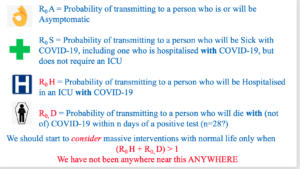

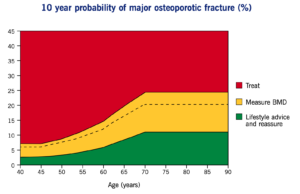

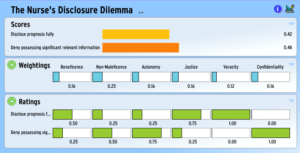
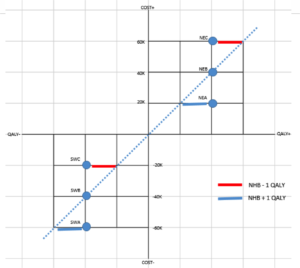

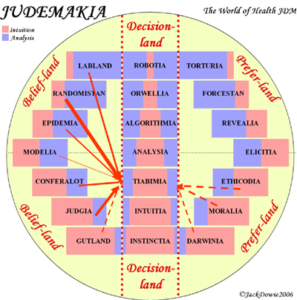



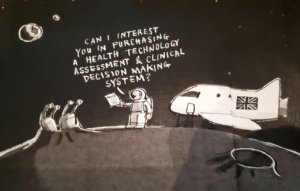


![★ The danger of partial or non-comparative evaluation [‘PONCE’]](https://www.easybest.org.uk/wp-content/uploads/2021/12/ponce-puerto-rico-300x171.png)
